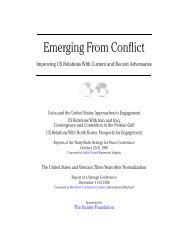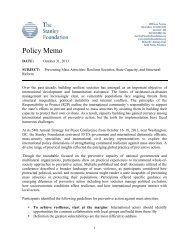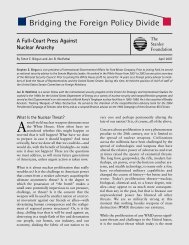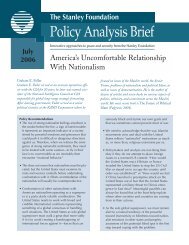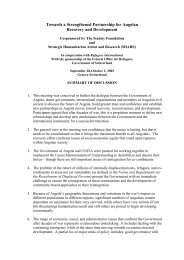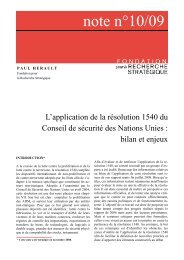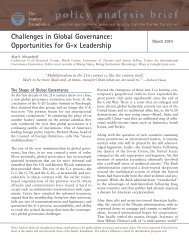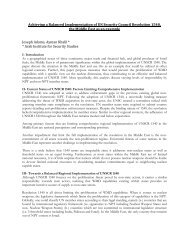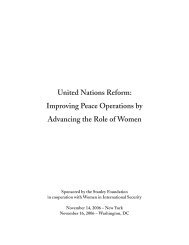444 By Susan Ariel Aaronson and David Deese With a reaction by ...
444 By Susan Ariel Aaronson and David Deese With a reaction by ...
444 By Susan Ariel Aaronson and David Deese With a reaction by ...
- No tags were found...
You also want an ePaper? Increase the reach of your titles
YUMPU automatically turns print PDFs into web optimized ePapers that Google loves.
alternative energy research <strong>and</strong> development, including oil s<strong>and</strong>s. It expects to spend$150 million for research on non-conventional oil <strong>and</strong> gas resources <strong>and</strong> new energysources in 2008.165Why were U.S. firms so slow to move on climate change? Managers at some ofthese firms not only rejected the concept of “climate change” but they also worked toblock a policy response which would have facilitated both adjustment <strong>and</strong> investment inalternative energy. In addition, these firms collaborated with government officials tothwart both international initiatives such as the Kyoto Protocol <strong>and</strong> domestic movement.The Bush Administration was sympathetic to this perspective: it rejected the KyotoProtocol as too costly <strong>and</strong> based on unproven science In fact, the Bush Administrationrejected any approach with m<strong>and</strong>ates. Several Senators put forward less stringentapproaches, but none passed Congress from 2000-2006. Finally, in 2007, Congresspassed <strong>and</strong> Bush signed the Energy Independence <strong>and</strong> Security Act of 2007. It raised fueleconomy requirements, provided incentives for biofuel development <strong>and</strong> usage, enhancedefficiency st<strong>and</strong>ards for buildings, lighting <strong>and</strong> appliances, <strong>and</strong> accelerated R & D ofsolar, geothermal <strong>and</strong> marine energy. But this bill did not end tax breaks for oil <strong>and</strong> gasexploration in the U.S. 166Perhaps the European companies have found it easier to respond to the challengeof climate change because the EU has evolved a more supportive policy environment.The EU Emissions Trading Scheme established a cap <strong>and</strong> trade within which participantscan trade emissions permits. This policy has encouraged all firms to reduce emissions aspart of their regular business planning, while removing much of the concern about loss ofcompetitive position to firms not participating. In addition, European governments have455



